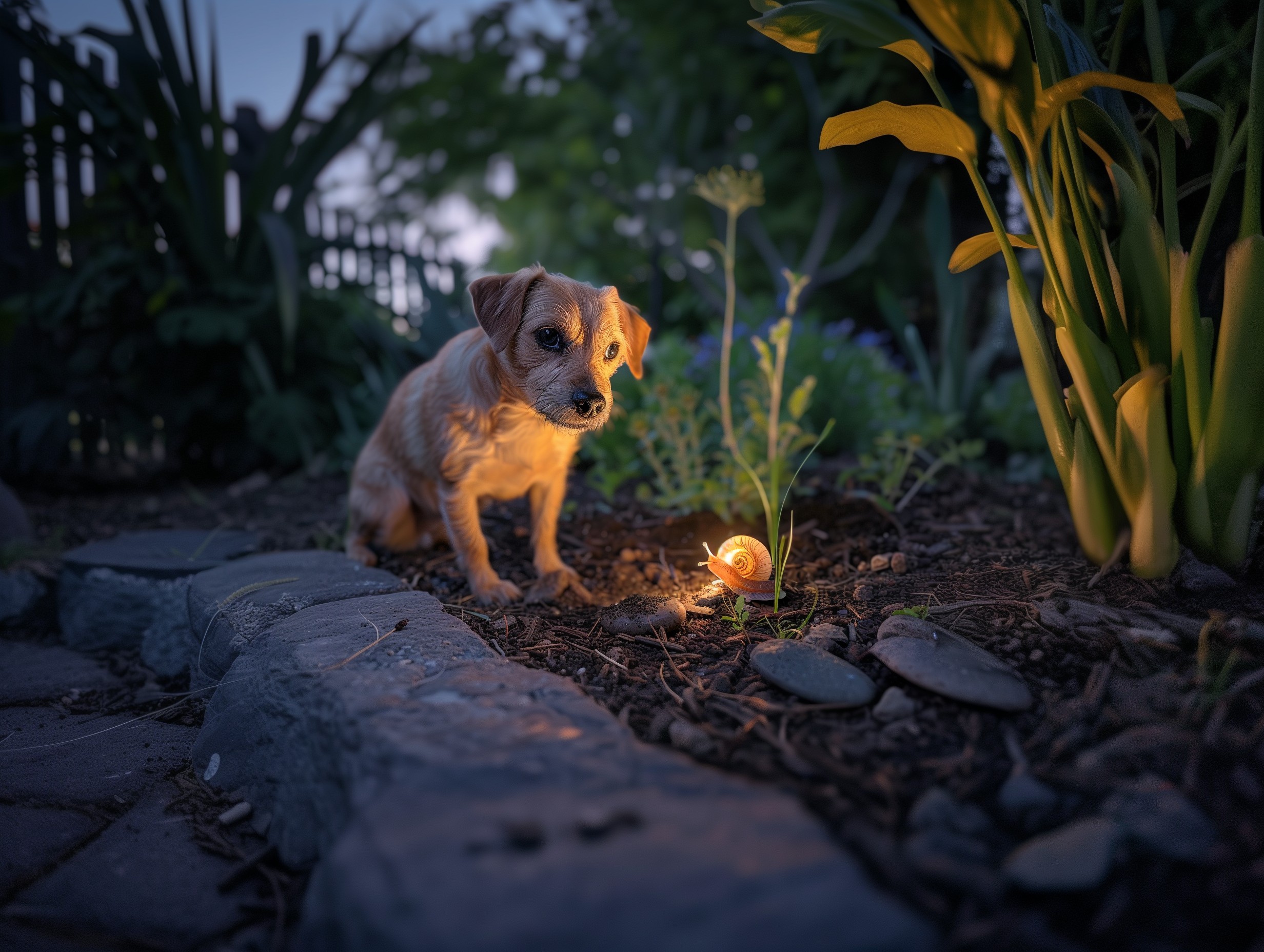
Can dogs eat slugs?
How do dogs catch lungworm?
Dogs can catch lungworm by accidentally ingesting slugs or snails that are infected with the parasite. The larvae of the lungworm can be found in the slime trails left by these creatures, and when dogs come into contact with the slime, they can become infected. The lungworm larvae can also be present in contaminated water sources, such as puddles or outdoor bowls, which dogs may drink from. Once inside the dog's body, the larvae migrate to the lungs and can cause respiratory symptoms and other complications.
Is slug slime poisonous to dogs?
Slug slime is not poisonous to dogs. While it may be unpleasant for dogs to come into contact with slug slime, it is not toxic or harmful to them. However, it is important to note that slugs and snails can carry parasites, such as lungworm, which can be transmitted to dogs when they ingest the slime. Therefore, it is recommended to prevent dogs from coming into contact with slugs or snails to avoid potential parasite infections.
Upset Stomach
If a dog ingests a slug or the slime it produces, it may experience an upset stomach. This can manifest as symptoms like vomiting, diarrhea, or loss of appetite. The upset stomach is usually a result of the dog's digestive system reacting to the foreign substance. In most cases, the symptoms are mild and resolve on their own within a day or two. However, if the symptoms persist or worsen, it is important to seek veterinary advice.
Slug Bait Poisoning
Slug bait poisoning can be a serious concern for dogs. Many slug baits contain toxic chemicals, such as metaldehyde, which can be highly toxic to dogs if ingested. Dogs may be attracted to the bait due to its smell or taste, and even a small amount can lead to poisoning. Symptoms of slug bait poisoning in dogs can include restlessness, tremors, seizures, increased heart rate, difficulty breathing, and even death in severe cases.
Is It Dangerous for Dogs to Lick a Slug?
Immediate signs
When it comes to slugs and dogs, there are immediate signs to look out for if your furry friend comes into contact with these slimy creatures. Dogs may exhibit symptoms such as excessive drooling, vomiting, diarrhea, and difficulty breathing. These signs can indicate that your dog has ingested a slug, which can be dangerous. Slugs produce a slimy substance called mucus, which can irritate a dog's gastrointestinal tract and cause gastrointestinal upset. In some cases, slugs can also carry parasites, such as lungworm, which can infect dogs and lead to more severe symptoms. If you notice any of these immediate signs, it is important to seek veterinary attention promptly to ensure your dog's health and well-being.
Long-term Symptoms
Ingesting slugs can expose dogs to various health risks, including the transmission of parasites. One such parasite is the lungworm, which can be found in slugs and snails. When a dog ingests a slug or comes into contact with its slime, they can become infected with lungworm larvae. Over time, this can lead to more severe symptoms, including coughing, breathing difficulties, weight loss, and even neurological issues. Additionally, slugs can carry bacteria that can cause infections in dogs, leading to long-term health problems.
What to Do If Your Dog Ingests a Slug
Signs of Lungworm Infection
One of the signs of lungworm infection in dogs is coughing. If your dog has a persistent cough that doesn't seem to go away, it could be a sign of lungworms. Other symptoms include difficulty breathing, lethargy, weight loss, and vomiting. If you notice any of these signs, it's important to take your dog to the vet for a check-up.
Vet check-ups
Regular vet check-ups are essential to ensure your dog's overall health and well-being. During these check-ups, the vet will examine your dog, check for any signs of illness or infection, and recommend necessary vaccinations and treatments. They may also perform tests to detect any underlying health conditions. By scheduling regular vet check-ups, you can catch any potential issues early and provide prompt treatment for your dog.
Medications and recovery
If your dog is diagnosed with lungworm infection, the vet may prescribe medications to treat the condition. These medications are typically aimed at killing the lungworms and preventing further infection. The recovery process may vary depending on the severity of the infection and the overall health of your dog. It's important to follow the vet's instructions regarding medication dosage and duration to ensure effective treatment. Additionally, providing a clean and comfortable environment for your dog during the recovery period can help facilitate their healing process.
How to Prevent Your Dog From Eating Slugs
Creating a safe outdoor environment
When it comes to creating a safe outdoor environment for your dog, it is important to be aware of potential dangers such as slugs. While slugs themselves are not typically dangerous to dogs, they can pose a risk if ingested. Slugs can carry parasites, such as lungworm, which can be harmful to dogs. To minimize the risk, it is essential to regularly clean your yard and remove any slugs or snails. Additionally, consider using pet-friendly slug repellents or creating barriers to prevent slugs from entering areas where your dog spends time.
Training Your Dog
As part of your dog's training, teach them to avoid eating or interacting with slugs. Use positive reinforcement techniques to reward your dog for ignoring slugs and redirect their attention to more desirable behaviors. Additionally, ensure that your dog has a solid recall command so that you can quickly intervene if they show interest in slugs. By incorporating slug awareness into your dog's training, you can help keep them safe and prevent any potential health issues.
Source List
- https://www.gov.wales/sites/default/files/publications/2017-12/dog-welfare-code-of-practice.pdf
- https://www.gov.wales/sites/default/files/consultations/2018-02/draft-code-en.pdf
- https://www.gov.scot/binaries/content/documents/govscot/publications/advice-and-guidance/2010/03/code-practice-welfare-dogs/documents/0095599-pdf/0095599-pdf/govscot%3Adocument/0095599.pdf